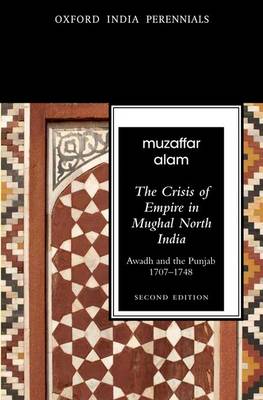Oxford India Perennials
1 total work
The period following the death of Aurangzeb has been viewed as the beginning of the decline and decay of the Mughal empire. Examining two contrasting regions of north India-Awadh and Punjab-this pioneering work shows how the period 1707-48 saw the emergence of a new order with local and regional idioms. Muzaffar Alam focuses on the interplay of imperial collapse with regional restructuring. He contends that even as the empire declined, there emerged a new, regionally-based political order,
maintained and controlled by former Mughal rulers. From agrarian uprisings to the jagirdari system, the Sikhs to the Zamindars, this book presents a bold new interpretation of an important transition in this period. This edition comes with a new introduction.
This book is an important reading for students, scholars, and teachers of Mughal history and early modern India.
maintained and controlled by former Mughal rulers. From agrarian uprisings to the jagirdari system, the Sikhs to the Zamindars, this book presents a bold new interpretation of an important transition in this period. This edition comes with a new introduction.
This book is an important reading for students, scholars, and teachers of Mughal history and early modern India.
